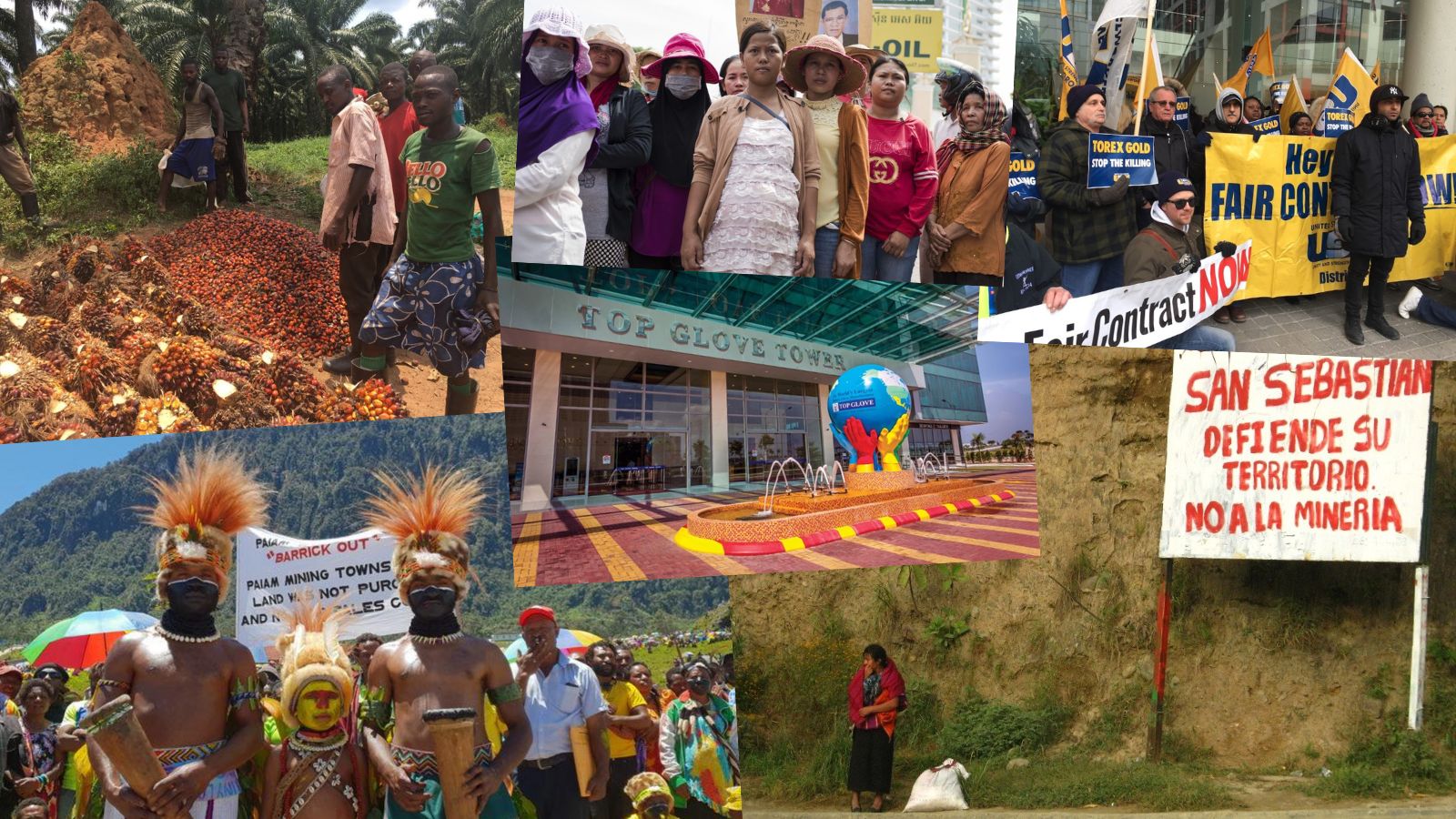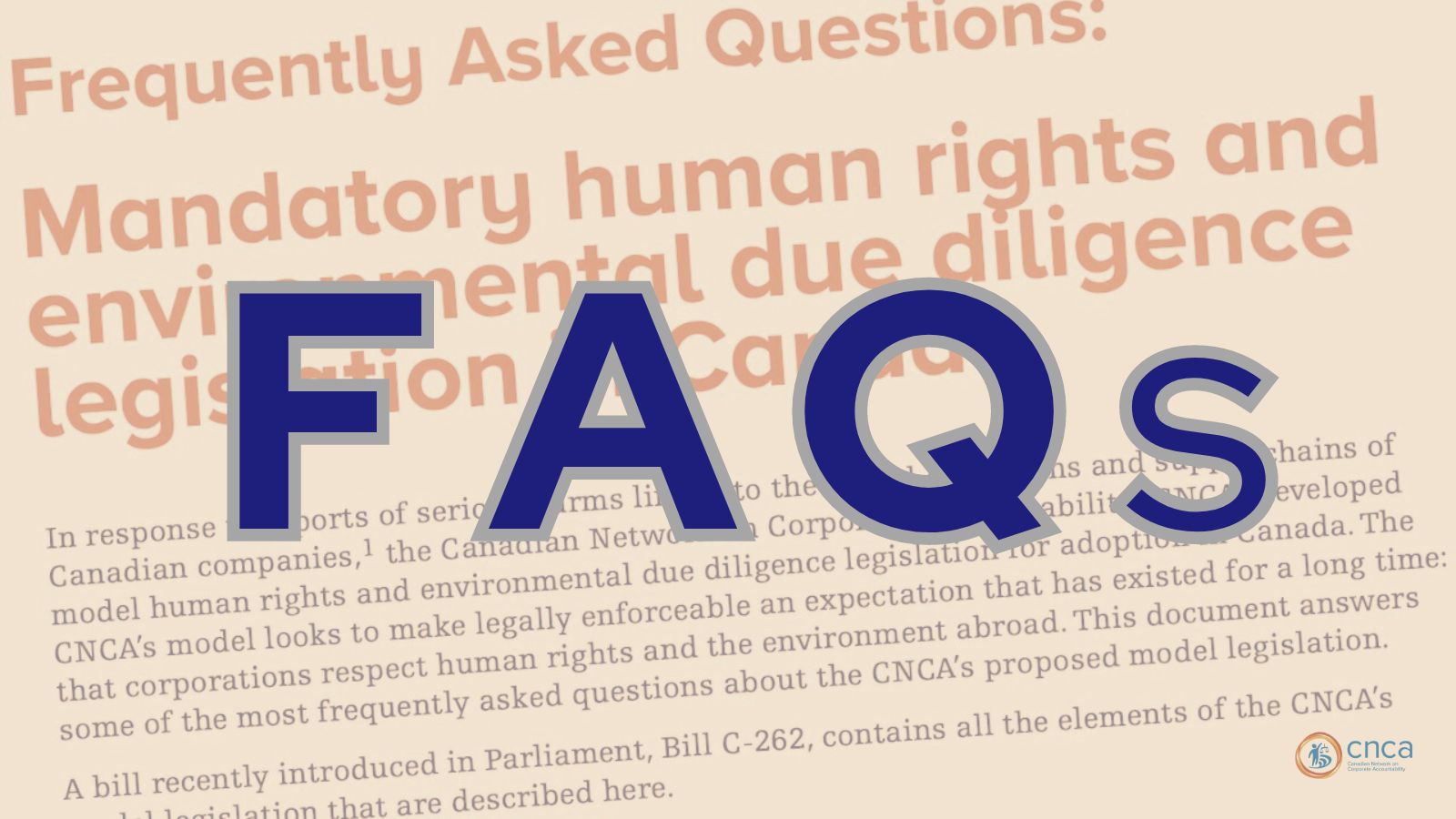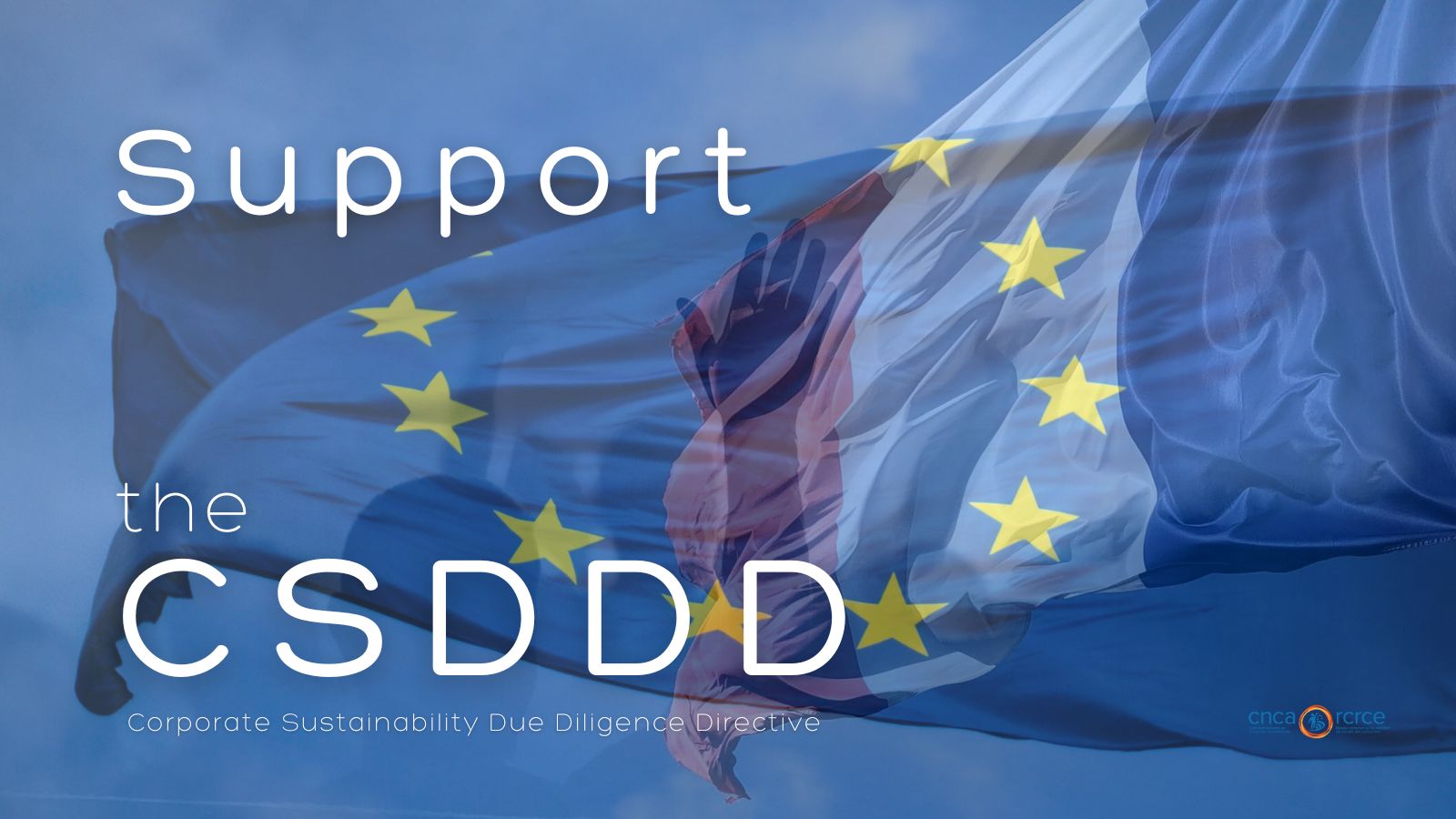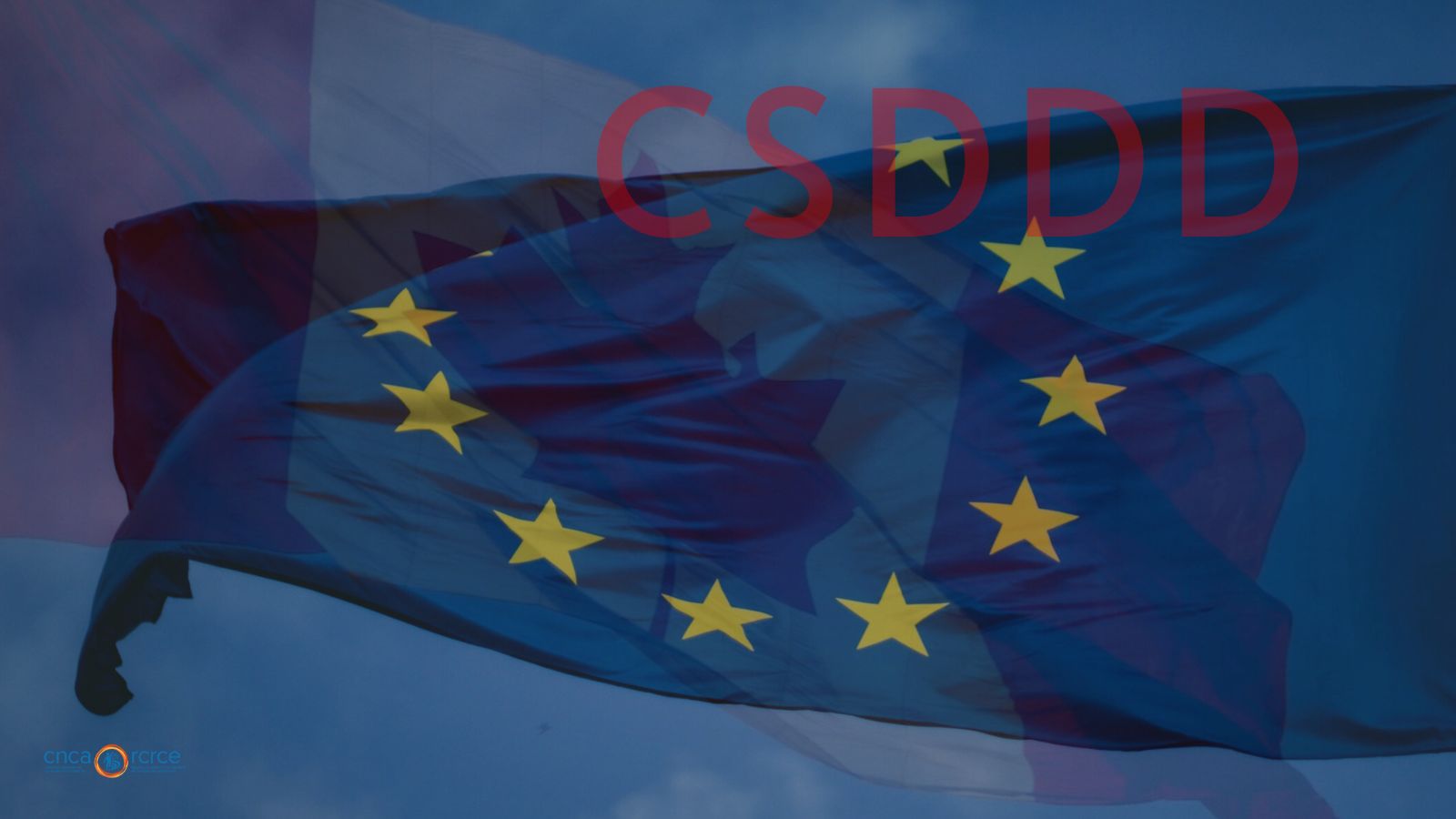Campaigns
Pass a Due Diligence Law

About this Campaign
Many Canadian companies and their global supply chains are implicated in human rights abuses and environmental damage around the globe. So far, Canada has merely encouraged ineffective voluntary measures to curb corporate abuse, and passed a weak reporting bill that doesn’t effectively deter future abuse.
The CNCA campaigns for the kind of law that will protect people and the environment: a mandatory human rights and environmental due diligence law. This kind of law requires companies to carefully assess the risk of harm to people and the environment when doing business, do what’s needed to minimize the risk, remedy any existing harm, and do everything in their power to prevent future harm. If a company fails to do any of these things, this law gives people negatively impacted by the company’s actions the power to seek justice in Canadian courts.
Key Resources for this Campaign
Latest from this Campaign
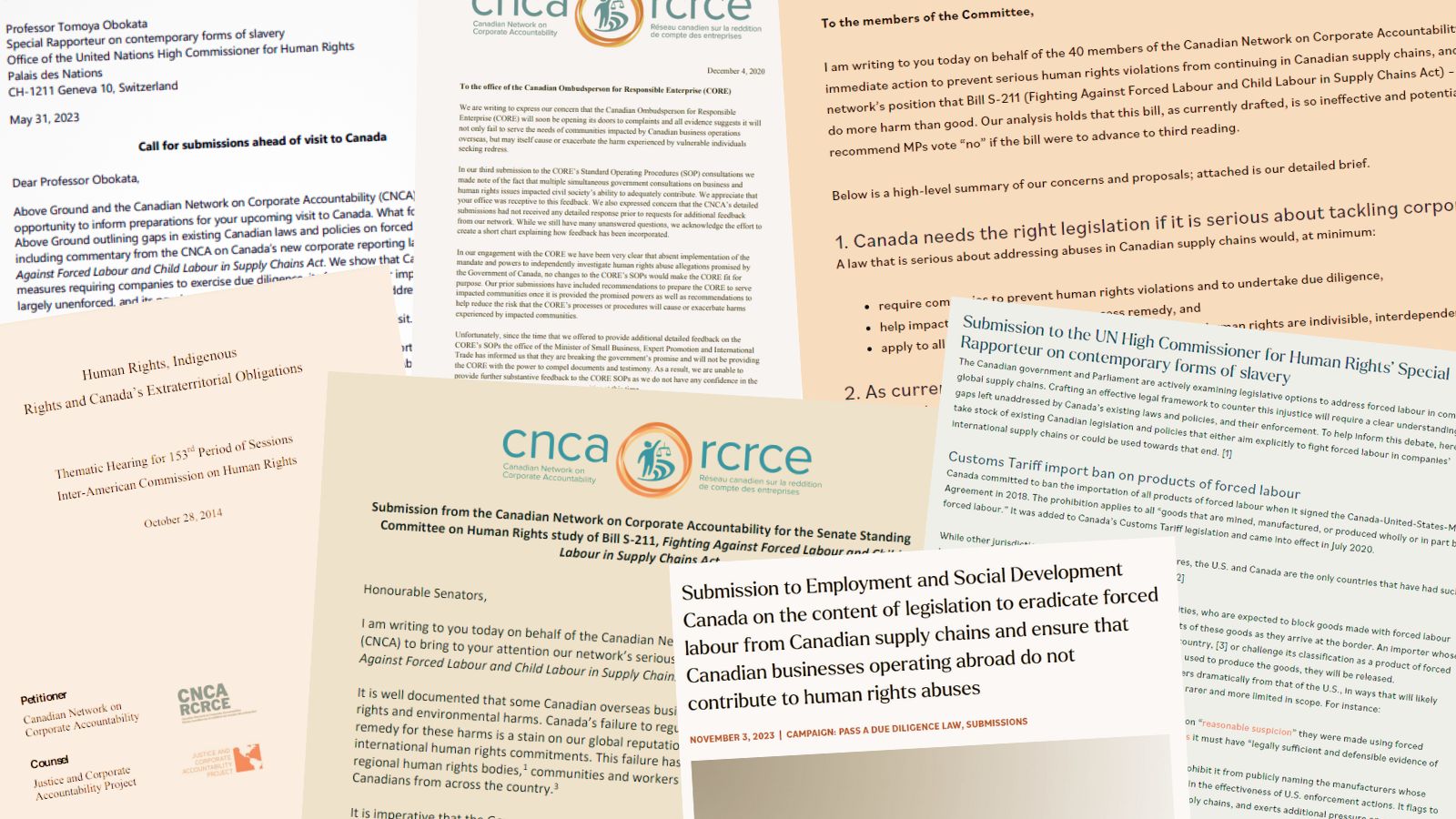
Model Legislation
Around the world, other countries and jurisdictions are taking real action to end corporate impunity. Canada needs a law that would require companies to take stock of how they may be contributing to human rights and environmental abuses, fix any problems they find, and prevent future harm. People who have been negatively impacted by the company’s actions are empowered to seek justice in court. This is called human rights and environmental due diligence legislation.
Canada could pass this kind of legislation too. The CNCA’s model law, the Corporate Respect for Human Rights and the Environment Abroad Act, provides lawmakers with a blueprint for writing into Canadian law the corporate duty to respect human rights and the environment.
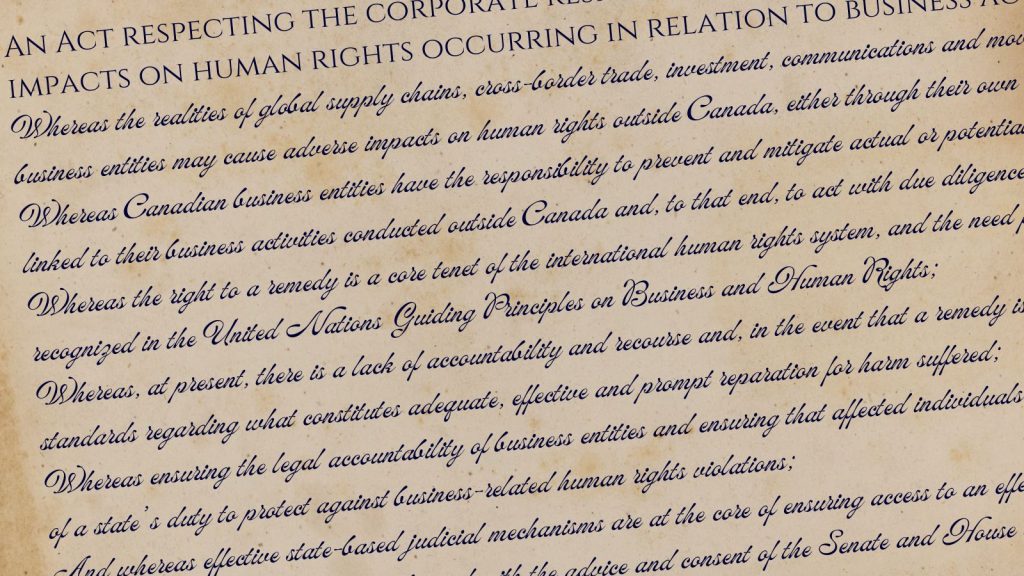
Take Action Today
Join over 50,000 Canadians in signing the CNCA’s petition for a mandatory human rights and environmental due diligence law. Let’s counter the corporate lobby, and show that a critical mass of Canadians is demanding serious action to hold our companies accountable in their global operations and supply chains.
Other Campaigns
Empower the C.O.R.E.
Canada’s Ombudsperson for Responsible Enterprise should have the power to compel witnesses and documents.
Model Legislation
The CNCA has developed two types of model legislation. One would require companies to take stock of how they may be contributing to human rights and environmental abuses, fix any problems they find, and prevent future harm. The other would create a corporate watchdog that could effectively hold Canadian companies accountable.
Make Canada Accountable
Canada’s financial, political and diplomatic support should not go to corporations involved with human rights and environmental abuse.

